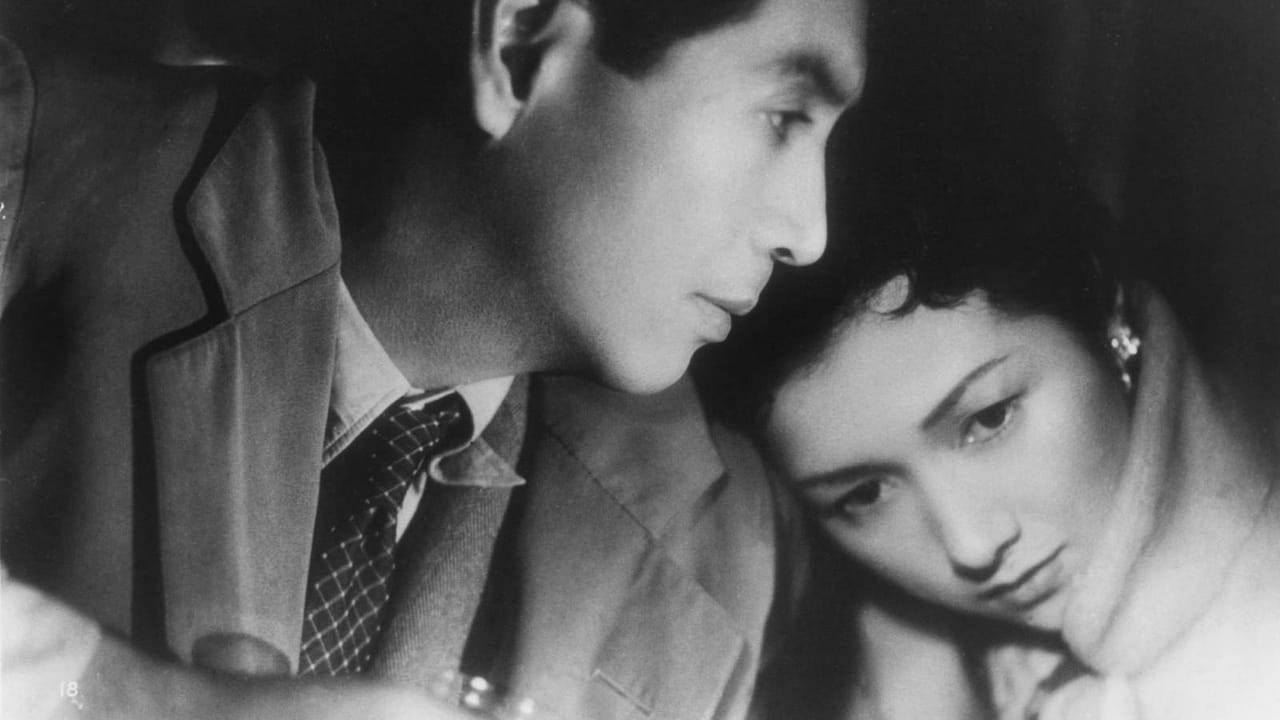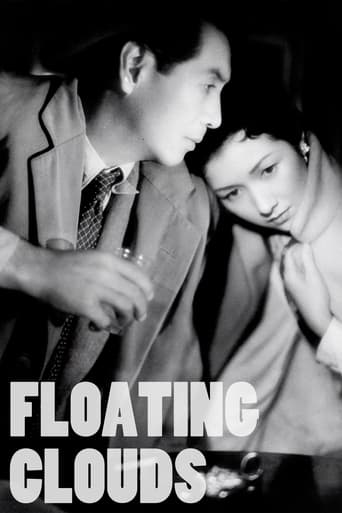Interesteg
What makes it different from others?
Diagonaldi
Very well executed
Janae Milner
Easily the biggest piece of Right wing non sense propaganda I ever saw.
Abegail Noëlle
While it is a pity that the story wasn't told with more visual finesse, this is trivial compared to our real-world problems. It takes a good movie to put that into perspective.
crossbow0106
This is a story about a couple who met in French Indo-China working for the Forestry Department for Japan. The story is ultimately about the time they spend once they return to Japan, which is somewhat tumultuous, as her is married. They do not spend the whole film together, at times Tomioka is with his wife and he even leaves Yukiko for another still younger woman, Osei. If this sounds like a tear-jerking soap opera, it kind of is. However, the movie is a powerful tale of love, betrayal and obsession. The beautiful Hideko Takamine (at times, I don't think she was ever more beautiful in a film) is excellent in a very challenging role, conjuring raw emotions often. At times you are torn between them even wanting to be together and I think that is what gives the film its compelling nature. If you are not fond of heavy drama, this is not your film. I feel the acting is superb (again, especially Ms. Takamine) and the story very watchable. Another great film by Mikio Naruse.
Red-125
Ukigumo (1955), directed by Mikio Naruse, was shown as "Floating Clouds" at the Dryden Theatre in Rochester as part of a Naruse retrospective. This is Naruse's best-known film, and it stars his muse, the outstanding actor Hideko Takamine. The film is adapted from a novel by Fumiko Hayashi. Seven or eight of Naruse's films were based on novels by this author. Finally, many of the Toho studio supporting players appear in this movie, as they do in all of Naruse's films. In summary, "Floating Clouds" is classic Naruse. As in many Naruse films, the theme is grim. Japan is still struggling in the aftermath of World War II. The economy is slow, and the pall of defeat still hangs over the country.Although we think of the war as totally tragic for everyone involved--especially everyone Japanese--this isn't accurate. Hideko Takamine's character (Yukiko) had a passionate and sincere wartime romance with an engineer when they were both stationed in an area away from the combat zone. It becomes clear--ten years later--that this love affair was the high point of both their lives. Masuki Mori plays Kengo, the engineer who loves Yukiko, but who will never marry her.The tragedy of the film is that both Yukiko and Kengo have known happiness, but realize they will never know it again. Such happiness as they can grasp is undone by the harsh realities of financial and physical problems.This movie is not exactly a masterpiece, but it is the perfect film if you can only see one work by Naruse. It defines his themes, demonstrates his unique skills and extraordinary expertise, and showcases the best actors in his company. It's a movie worth seeking out and watching.
Michael Kerpan (kerpan)
"Ukigumo" covers a considerable span of time and numerous locations. It tells the story of a young woman (Hideko Takamine) who served in Japan's forest service in Indochina during WW2, and fell in love with a (married) co-worker (Masayuki Mori) while there. After the war, she returns to Japan, completely impoverished, and finds her lover (more or less) comfortably re-established in his family and uninterested in fulfilling the idle promises he made during the war. While Mori is only willing to dally half-heartedly with her (as well as younger prettier women), Takamine remains obsessed with him. Takamine and Mori do a fine job. I found the story effective enough, albeit a bit overly melodramatic. Not my favorite Naruse film, but very much worth seeing.
William J. Fickling
This at first appears to be a riveting study of human relationships, and it is entertaining. But ultimately it never gets beyond the level of a high class soaper, and it goes on far too long. Calling it a soaper is by no means pejorative; I am a dedicated fan of Douglas Sirk. But Sirk never took himself as seriously as the makers of this film appear to, and that makes it all the more ponderous. Worth seeing, however.

